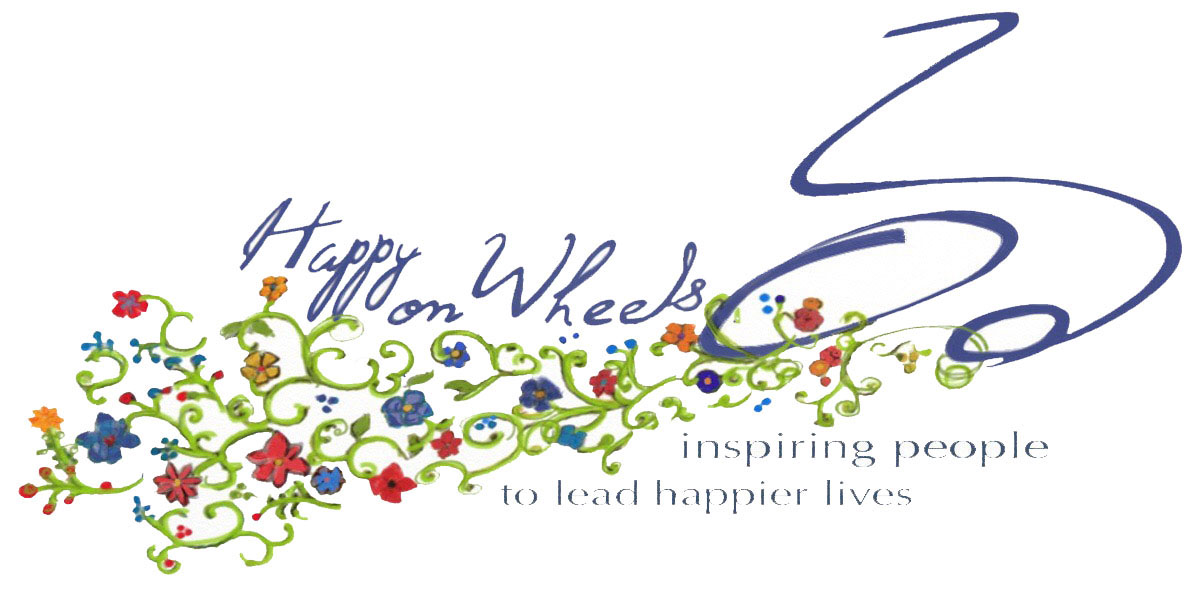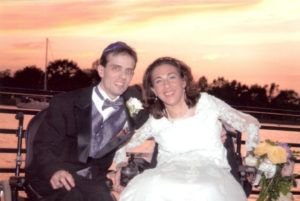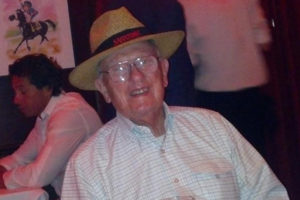There Isn’t Only One Way
Author: Sheri Denkensohn
Over the past six months I have had family and friends experience difficult, and in some cases tragic, health issues. Having a disability and usually being on the side of receiving support from others gives me a unique perspective on how to help. However, there is  no “one way.” Despite the lack of a perfect formula, sharing some of my recent experiences will hopefully provide some examples of how you can effectively serve as a supporter.
no “one way.” Despite the lack of a perfect formula, sharing some of my recent experiences will hopefully provide some examples of how you can effectively serve as a supporter.
First, is recognition that at times it is harder to be the supporter than the person going through a difficult situation. For instance, most of the time when I was sick or going through something difficult, I slept or was on medication that made me “out of it.” My husband (and other friends and family) had the stress of trying to think of ways to help and control the situation and because there was little he could do, the feeling of helplessness becomes overwhelming. He has instilled in me the importance of always reaching out to the “supporter” because having been in those shoes many times, he knows that it is hard and frustrating.
I got a real eye-opening when Tony was waiting and then diagnosed with B-Cell non-Hodgkin’s lymphoma. It isn’t cliché to say “the waiting is the hardest part.” During that timeframe, I told myself  that I had to be upbeat, comforting, strong, and a good listener. It was helpful to talk about what Tony was feeling and at the same time keep moving forward while we were waiting. I made plans for us to go out and do fun things and at the same time still rest and acknowledge that we were together in the dilemma that he was going through. There were many times when it was important to deal with the information at hand, such as after the biopsy, surgery and diagnosis. At the same time, to be respectful of his wishes regarding the information that he wanted shared, and with whom. I realized that it was important for him to feel that he could tell me when he was scared, nervous and upset. It was painful to hear, but I was the listener and in trying to provide comfort, I realized that if I was in his position, I would want validation that my feelings were not out of the ordinary. We made it through together and admittedly, it was one of the hardest times of my life. I joked that I finally got a glimpse of what it was like to be on the other side. But it is not a laughing matter and we continue to live our lives, focus on being healthy, and continue to experience joy. I know there will be bumps coming such as an upcoming blood test and CT scan, but hopefully that will become part of the journey and I will be there to serve as a supporter and companion at appointments.
that I had to be upbeat, comforting, strong, and a good listener. It was helpful to talk about what Tony was feeling and at the same time keep moving forward while we were waiting. I made plans for us to go out and do fun things and at the same time still rest and acknowledge that we were together in the dilemma that he was going through. There were many times when it was important to deal with the information at hand, such as after the biopsy, surgery and diagnosis. At the same time, to be respectful of his wishes regarding the information that he wanted shared, and with whom. I realized that it was important for him to feel that he could tell me when he was scared, nervous and upset. It was painful to hear, but I was the listener and in trying to provide comfort, I realized that if I was in his position, I would want validation that my feelings were not out of the ordinary. We made it through together and admittedly, it was one of the hardest times of my life. I joked that I finally got a glimpse of what it was like to be on the other side. But it is not a laughing matter and we continue to live our lives, focus on being healthy, and continue to experience joy. I know there will be bumps coming such as an upcoming blood test and CT scan, but hopefully that will become part of the journey and I will be there to serve as a supporter and companion at appointments.
Second, very recently a good friend, who lives out west, lost her mom in a very tragic and unexpected manner. It is a challenge, even in the world of social media, to help a friend that lives far away. The sheer volume of posts and messages and people reaching out through various outlets is comforting, but it can also be overwhelming. I felt that way when my father passed  away. Additionally, my friend was going through her own physical recovery from surgery at the time. I did my best at being a realist. What do I mean by this? I kept expressing to her that this was not fair and “love and prayers” were not going to make her feel completely better. I spoke honestly and directly and checked in every day, telling her that she didn’t have to answer but that I was thinking about her. I consistently asked her “what are you feeling?” when we spoke or communicated via social media and I think this helped. Luckily, the weather did not interfere, and we drove from Virginia to New York and attended the memorial service for her mother. It was not possible for everyone who lived far away to make the trip, but I felt it was important for us to be there if I was able. I am so glad that we went. My friend spoke beautifully at the service and I know that our being there gave her a feeling of love and support.
away. Additionally, my friend was going through her own physical recovery from surgery at the time. I did my best at being a realist. What do I mean by this? I kept expressing to her that this was not fair and “love and prayers” were not going to make her feel completely better. I spoke honestly and directly and checked in every day, telling her that she didn’t have to answer but that I was thinking about her. I consistently asked her “what are you feeling?” when we spoke or communicated via social media and I think this helped. Luckily, the weather did not interfere, and we drove from Virginia to New York and attended the memorial service for her mother. It was not possible for everyone who lived far away to make the trip, but I felt it was important for us to be there if I was able. I am so glad that we went. My friend spoke beautifully at the service and I know that our being there gave her a feeling of love and support.
My last example stands something that many people don’t think about. Sometimes visiting a person that is adjusting to a new care setting and not feeling their best is overwhelming and not helpful. As someone who has been through a multitude of surgeries and recoveries, many times the thought of visitors is often too stressful to comprehend. Therefore, I always ask people if it is okay to visit, explaining that I completely understand if the individual and/or their family respond that it is not the right time. That  answer is perfectly okay. And anyone hearing that answer should not feel like they are being pushed aside. It is giving permission to the individual and the family to say “no, we are not ready” without consequences.
answer is perfectly okay. And anyone hearing that answer should not feel like they are being pushed aside. It is giving permission to the individual and the family to say “no, we are not ready” without consequences.
There are many more examples that I can offer, but hopefully these provide insight into what I have found to be a recipe for the best outcome possible under challenging circumstances. To end on a positive note, what is most important is to make memories with those you love, cherish the good times, and appreciate the little things. You never know what life will bring.

 I’ve been thinking about writing about this topic for a while, and I was moved to finally do so after reading a blog in the Huffington Post (from 2015, but still relevant). In the blog, the writer, an individual with Spinal Muscular Atrophy, relays to the reader that most people assume that his girlfriend is his caregiver. His name is Shane Burcaw and he has a book coming out at the end of April.
I’ve been thinking about writing about this topic for a while, and I was moved to finally do so after reading a blog in the Huffington Post (from 2015, but still relevant). In the blog, the writer, an individual with Spinal Muscular Atrophy, relays to the reader that most people assume that his girlfriend is his caregiver. His name is Shane Burcaw and he has a book coming out at the end of April.

 becomes reality. So even though I should have been ready, I was not. I had convinced myself that he would be around forever.
becomes reality. So even though I should have been ready, I was not. I had convinced myself that he would be around forever.